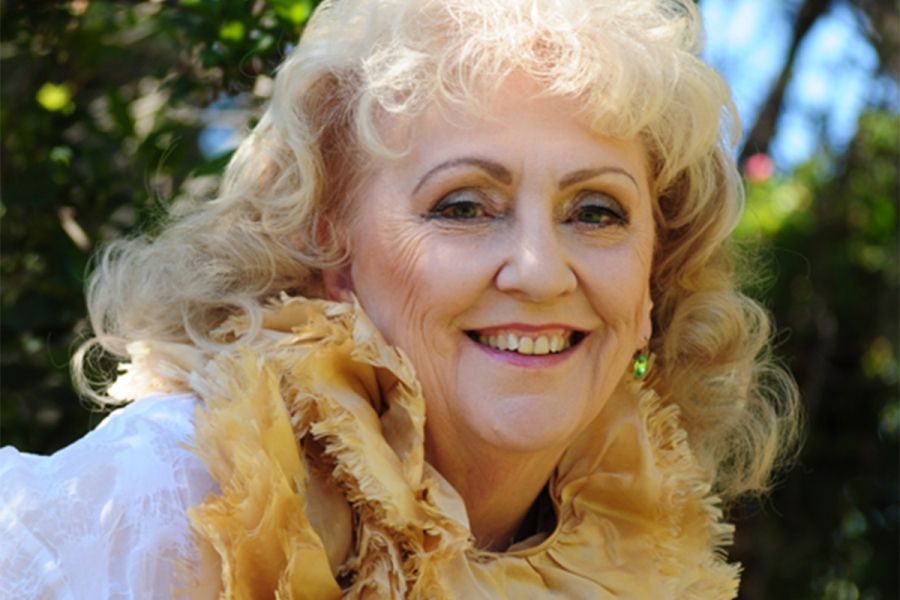
- Free Article: No
- Contents Category: Self Portrait
- Custom Article Title: Self Portrait
- Review Article: Yes
- Article Title: Self Portrait
- Online Only: No
- Custom Highlight Text:
When I read fiction I want the words to take my spirit into the places beneath the surface of the everyday world. I want the freshness of dreams to be again revealed to me. I want to know the loveliness and terror of what lies beyond the last star, of what lies sweetly cradled in the blood and juices of the human heart. I long to feel the shock when the tulip spikes the damp soil, feel the blissful impact of the truth, see the glint, the glimmer, the shimmer of another reality. When I read I wish to enjoy the company of the writer and the company of the people and the things in the story, to participate with all of them in the seductive mystery. I desire to be enchanted.
Although writing, like reading, is a solitary occupation, I am not lonely when I write because I feel the presence of my characters and spirit of my reader. We are all talking to each other, connected not only to each other, but to everybody and everything. Another of the great pleasures of writing fiction is that nobody can do it for me. I can hire somebody to clean the house, cook the food, make the wedding dress, prune the roses, but I can’t get someone to write my stories. The grief, lamentation, fever, passion, delighted expectation and the joy are mine. As I write down the words. The story, the sentences, the words – mine. The anguish and exhilaration of the power to create and destroy belong to the fiction-writer. The ideas of creation and destruction haunt me; they haunt me in images, in memories, visions and dreams. Much of my fiction reveals this haunting, this fascination which I trace back, back into bright memory.
I remember when my mother used to take me to the cemetery.
When there were trams in Launceston, the line ended at the cemetery gates, at the top of a gentle slope. On each side of the tram-line there was a row of pine trees that formed a sombre tunnel through which the trams would glide. The cemetery was always called just ‘Carr Villa’ and the words stood for something terrible. My mother and I would go to Carr Villa to put fresh flowers on the family grave. I thought of it as my grandmother’s grave, although in it were buried my grandfather and my uncle, both of whom had died before I was born.
Behind the grave there is a row of pine trees, and low clipped hedges of rosemary ramble along the edges of the gravel paths. The smell of pine and rosemary and the smell of corruption are therefore linked.
At the end of the hedge near my grandmother’s grave there was an old tap. My mother and I would empty the vase from the grave, pouring the stale-smelling water into the drain under the tap. Strands of brown, slimy, translucent leaves caught on the grating and slid off as the water drained away. The vase that we were emptying was made from pottery. It was tall, glazed with splashes of Prussian blue and yellow ochre. There was always the chance that it would be stolen and broken. But it was a matter of pride that there must be a real vase on the grave, not a jam jar. My mother turned the tap on hard to fill the vase with water. The sound of the water rushing into the vase was to me like a picture, like a description of my mother’s terrible sadness. It was a clear statement going straight from the tap to my heart. In my mother there was an awesome loneliness, and it was this loneliness which spoke there in the cemetery as the water gushed into the vase from the tarnished tap by the dark sinister smell of the drain and the leaves of the rosemary hedge.
It was a big old beautiful grave, the surface covered with raked marble pebbles flecked grey and white and black. In front of the white marble headstone there was a bouquet of china flowers, white as doves, beneath a glass dome, all sacred to the memory of John Henry, Geoffrey, and Ellen Margaret. Ellen Margaret died when I was three. I used to see her standing in her kitchen in a dark dress, wearing a navy-blue apron and holding a loaf of bread against her bosom. With a big bone-handled knife she slapped the butter onto the cut end of the loaf, and then she sawed off a slice of buttered bread, cutting in towards her body. Behind her was a mantelpiece from which hung a fringe of burgundy velvet bobbles. Above the mantelpiece in a particular pool of gloom hung an oval picture of the luscious, threatening, beloved Sacred Heart. He faced the open back door through which could be seen a field of marigolds, and beyond them, me in the cabbages with the white moths.
My mother would let me stand on the pebbles of the grave to arrange the flowers in the vase. The pebbles shifted and crunched and shuffled under my shoes. Once, as I was bending over to put marigolds from Ellen’s garden into the vase. I was gripped by a power in the earth beneath me. I felt my body rapidly dissolve, leaving only a white outline with details sketched in white. I was a wisp of pointed ectoplasm spearing the surface of the grave which quickly sucked my whiteness into itself. And then l stood again in my own cool surprised flesh beside the huge vase of marigolds.


Comments powered by CComment